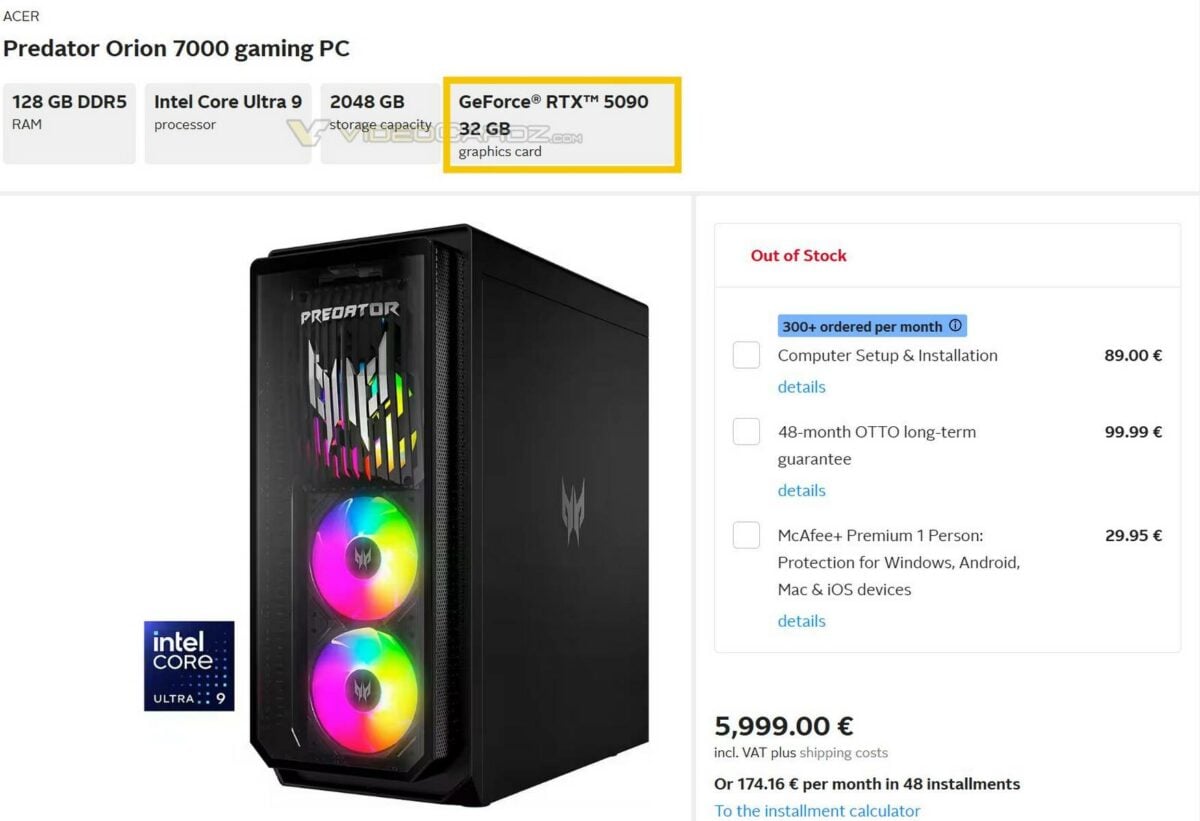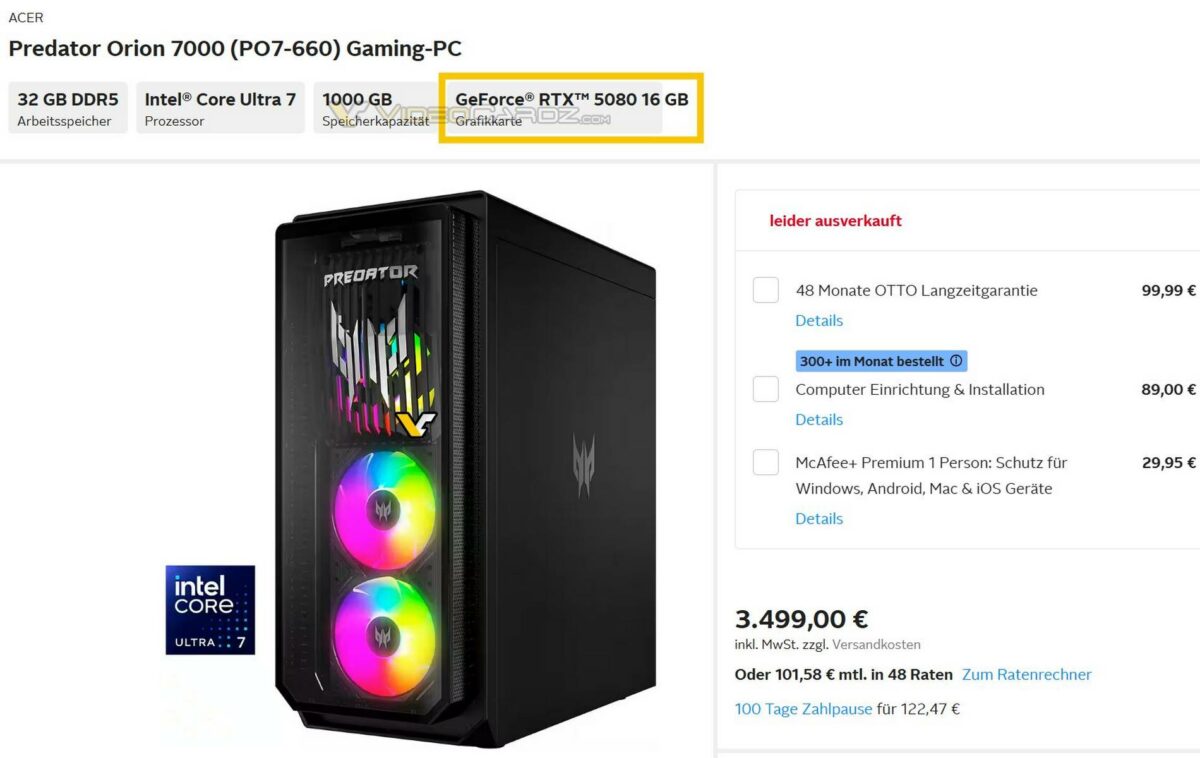It seems that retailers are more excited for Nvidia’s upcoming GPUs than gamers, as a German storefront listed systems powered by high-end RTX 50 Series cards. Given the listed specs, these seem to be well-built for modern games – as they should be for such an exorbitant price.
Retailer Otto briefly added two Acer Predator Orion 7000 gaming PCs to its offerings before removing them. Among their specs, we spotted Nvidia’s yet-to-be-announced GeForce RTX 5090 and RTX 5080 graphics cards, confirming their naming and VRAM capacities.
The former is expected to feature the top-tier GB202 GPU packing 21,760 CUDA cores alongside 32GB of GDDR7 memory, while the latter sits far behind with only 10,752 cores and 16GB of GDDR7 VRAM. Aside from the rumoured 30Gbps memory speed, RTX 5080 seems to pack half of every RTX 5090 spec, including the bus-width.


The most expensive machine demands a ridiculous €5,999 for an RTX 5090 plus a Core Ultra 9 285K, 128GB of DDR5, and 2TB of SSD storage, which is more than enough for gaming. You might question the decision to go with Intel’s current flagship over the likes of the last-gen Core i9-14900K or AMD’s Ryzen 9800X3D, both of which are more performant in our reviews. Part of this likely comes from stock availability, as 14th Gen is on its way out, but much of it hinges on the fact that updates will have fixed Core Ultra 9 285K by the time these graphics cards land in January.
If we make a rough cost estimate of all components using high-end hardware excluding the GPU, we are far below €3,000. This means one of two things, either the RTX 5090 will cost around €3,000 including prebuilt labour, or these are simply price placeholders. The latter is more plausible both due to the eyewatering price and because Nvidia is known for setting prices at the last moment before launch.
The second machine on the other hand is much more reasonable – though still expensive for its specs – at €3,499. In it, we find Core Ultra 7 265KF, 32GB of DDR5, and a 1TB SSD, all coming below €2,000 even when selecting quality components. This puts the RTX 5080 at €1,500 which, short of being official, at least scales with its specs.
While it is fun to joke about Nvidia’s high GPU prices, “the more you buy the more you save” motto doesn’t apply to consumer products. In other words, even Nvidia will have a hard time convincing users to shell out for a €3,000 card. But hey, I may be wrong.

